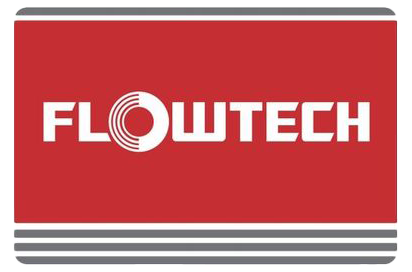Introduction
The food and beverage industry relies heavily on accurate flow measurement. Whether it’s milk, juices, beer, soft drinks, or ingredients in pharmaceutical-grade food products, precise flow monitoring ensures product quality, safety, consistency, and regulatory compliance.
But flow measurement in this sector isn’t always straightforward. Unique challenges like hygiene, viscosity changes, temperature variations, and cleaning cycles demand careful selection of flow meters.
In this blog, we’ll explore the common challenges in flow measurement for food and beverages and share best practices to overcome them.
Why Flow Measurement Matters in Food & Beverage
Accurate flow measurement is essential for:
- Quality Control – Ensuring consistent taste, texture, and product concentration.
- Batching & Dosing – Measuring precise amounts of ingredients in recipes.
- Regulatory Compliance – Meeting food safety standards (ISO, HACCP, FDA, etc.).
- Process Efficiency – Reducing waste and optimizing production lines.
- Cost Control – Minimizing overuse of raw materials.
Without reliable flow meters, manufacturers risk inconsistent products, safety issues, and increased production costs.
Challenges in Flow Measurement for Food & Beverage
1. Hygiene and Sanitation
- Equipment must withstand frequent cleaning and sterilization (CIP/SIP).
- Any contamination risks brand reputation and compliance failures.
- Flow meters must be made of stainless steel with sanitary connections.
2. Viscosity and Temperature Variations
- Products like syrups, chocolate, or dairy have changing viscosities.
- Heating and cooling processes affect flow behavior.
- Meters must handle these variations without losing accuracy.
3. Abrasive or Sticky Fluids
- Sugar syrups, concentrates, and pulpy juices can cause deposits or damage moving parts.
- Traditional mechanical meters wear out faster in such conditions.
4. Cleaning Cycles
- High-pressure cleaning and harsh chemicals during CIP/SIP cycles can affect sensor life.
- Flow meters must remain accurate after multiple cleaning cycles.
5. Compliance with Regulations
- Industry standards like FDA, EHEDG, 3-A Sanitary Standards demand hygienic design.
- Flow meters must meet these requirements to be approved for use.
Best Practices for Flow Measurement in Food & Beverage
1. Choose the Right Flow Meter Technology
Different technologies are suited for different applications:
- Electromagnetic Flow Meters (Magmeters)
- Best for conductive liquids like milk, juices, beer, and sauces.
- No moving parts → highly hygienic and low maintenance.
- Coriolis Mass Flow Meters
- Provide both mass flow and density measurements.
- Ideal for batching, dosing, and high-value products.
- Ultrasonic Flow Meters
- Non-intrusive, hygienic, and suitable for both clean and viscous fluids.
- Turbine Flow Meters (Sanitary)
- Accurate and cost-effective for clean, low-viscosity liquids.
- Stainless steel, CIP-ready designs available.
2. Prioritize Hygienic Design
- Select meters with smooth surfaces and crevice-free design to avoid bacterial growth.
- Use tri-clamp or sanitary fittings for easy removal and cleaning.
- Always verify compliance with EHEDG, 3-A, or FDA standards.
3. Install with Best Practices
- Ensure straight pipe runs (as recommended by the manufacturer) for accuracy.
- Avoid locations with excessive vibration or air bubbles.
- Use flow conditioners if space is limited.
4. Calibrate Regularly
- Food processes require consistent accuracy.
- Schedule calibration as per manufacturer or industry guidelines.
- Partner with NABL or ISO-certified calibration labs for compliance.
5. Integrate with Automation Systems
- Connect flow meters to SCADA, PLC, or DCS systems for real-time monitoring.
- Enables better process control, data logging, and quality assurance.
Real-World Applications in Food & Beverage
- Dairy Processing: Measuring milk flow during pasteurization.
- Breweries: Monitoring beer during fermentation and bottling.
- Soft Drinks: Precise syrup-to-water mixing ratios.
- Pharmaceutical Foods: Liquid formulations with strict dosing requirements.
- Confectionery: Measuring chocolate and syrup flow under varying viscosity conditions.
FAQs
Q1. Which flow meter is most suitable for milk?
Electromagnetic or Coriolis meters are ideal since they ensure accuracy and maintain hygiene.
Q2. How often should flow meters be calibrated in food plants?
At least once a year, or as per regulatory compliance requirements.
Q3. Can flow meters withstand CIP cleaning?
Yes, sanitary-grade flow meters are designed to handle high-temperature CIP/SIP cycles.
Conclusion
Flow measurement in the food and beverage industry comes with unique challenges, from hygiene and compliance to handling viscous or sticky fluids. By choosing the right flow meter technology, prioritizing hygienic design, and following best practices, manufacturers can ensure accurate, safe, and efficient operations.
👉 At Flowtech Instruments, we provide sanitary flow meters tailored for food & beverage applications, ensuring compliance, accuracy, and long-term reliability.
📩 Contact us today to find the right solution for your production line.


